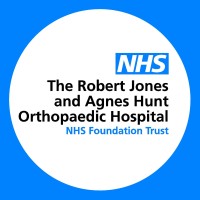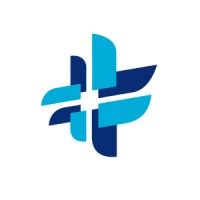
The Robert Jones and Agnes Hunt Orthopaedic Hospital NHS Foundation Trust Company Cyber Security Posture
rjah.nhs.ukWith a worldwide reputation for innovation and research, The Robert Jones and Agnes Hunt Orthopaedic Hospital NHS Foundation Trust, provides the highest quality hospital care to patients locally, regionally and nationally. The surrounding geographical area includes Shropshire, Wales, Cheshire and the Midlands. The Orthopaedic hospital mainly treats disorders of the bones, joints and muscles. Surgical areas comprise hip and knee replacement, foot, ankle and lower limb surgery, hand shoulder and upper limb surgery (including hand emergencies), spinal disorders, bone tumour and sports injury surgery. We host the regional centres for Spinal Injuries at the Midlands Centre for Spinal Injuries and the Regional Bone and Soft Tissue Tumour Service. Additionally we treat people with metabolic disorders (including osteoporosis) and those with inflammatory arthritis. We have a centre for children and provide specialist surgery and treatment for children and adolescents with orthopaedic or disorders affecting muscular development. The Trust also provides services for private patients within Ludlow Unit.
RJAHOHNFT Company Details
robert-jones-&-agnes-hunt-orthopaedic-&-district-hospital-nhs-trust
390 employees
2321
62
Hospitals and Health Care
rjah.nhs.uk
Scan still pending
THE_2672613
In-progress
Between 800 and 900
This score is AI-generated and less favored by cyber insurers, who prefer the TPRM score.
 RJAHOHNFT Global Score
RJAHOHNFT Global Score.png)

The Robert Jones and Agnes Hunt Orthopaedic Hospital NHS Foundation Trust Company Scoring based on AI Models
| Model Name | Date | Description | Current Score Difference | Score |
|---|---|---|---|---|
| AVERAGE-Industry | 03-12-2025 | This score represents the average cybersecurity rating of companies already scanned within the same industry. It provides a benchmark to compare an individual company's security posture against its industry peers. | N/A | Between 800 and 900 |
The Robert Jones and Agnes Hunt Orthopaedic Hospital NHS Foundation Trust Company Cyber Security News & History
| Entity | Type | Severity | Impact | Seen | Url ID | Details | View |
|---|---|---|---|---|---|---|---|
| The Robert Jones and Agnes Hunt Orthopaedic Hospital NHS Foundation Trust | Data Leak | 60 | 3 | 05/2018 | THE21324722 | Link | |
Rankiteo Explanation : Attack with significant impact with internal employee data leaksDescription: The trust running Oswestry’s orthopaedic hospital has reported a data breach involving patients who were involved in a long-standing study. An investigation has been launched after the incident. It is not yet known how many patients were affected by the breach. | |||||||
The Robert Jones and Agnes Hunt Orthopaedic Hospital NHS Foundation Trust Company Subsidiaries

With a worldwide reputation for innovation and research, The Robert Jones and Agnes Hunt Orthopaedic Hospital NHS Foundation Trust, provides the highest quality hospital care to patients locally, regionally and nationally. The surrounding geographical area includes Shropshire, Wales, Cheshire and the Midlands. The Orthopaedic hospital mainly treats disorders of the bones, joints and muscles. Surgical areas comprise hip and knee replacement, foot, ankle and lower limb surgery, hand shoulder and upper limb surgery (including hand emergencies), spinal disorders, bone tumour and sports injury surgery. We host the regional centres for Spinal Injuries at the Midlands Centre for Spinal Injuries and the Regional Bone and Soft Tissue Tumour Service. Additionally we treat people with metabolic disorders (including osteoporosis) and those with inflammatory arthritis. We have a centre for children and provide specialist surgery and treatment for children and adolescents with orthopaedic or disorders affecting muscular development. The Trust also provides services for private patients within Ludlow Unit.
Access Data Using Our API

Get company history
.png)
RJAHOHNFT Cyber Security News
Robert Jones and Agnes Hunt inks 10-year EPR deal with System C
Robert Jones and Agnes Hunt's existing e-observations and medicines management modules from System C will be integrated with the new EPR.
Kettering General Hospital embarks on digital medical records project
Kettering General Hospital is embarking on a major medical records digitalisation project with partners System C, IMMJ Systems and SPS.
Key suppliers of electronic medical records ‘need to be more interoperable’
Researchers at the Institute of Global Health Innovation found most NHS trust were using three key suppliers: Cerner, DXC Technology and ...
Leeds and York go live with Advanced electronic patient record
East Sussex Healthcare NHS Trust has signed a 10-year contract with Nervecentre to implement its electronic patient record (EPR) system. Company.
Whittington has ‘complete picture’ of vital signs thanks to CareFlow
The technology has been rolled out across the adult wards, meaning staff are now recording details of a patient's vital signs on tablets ...
Barnsley Hospital teams up with a number of partners for EDMS project
Barnsley Hospital has teamed up with System C, IMMJ Systems and Iron Mountain for an Electronic Document Management System (EDMS) project.
East Cheshire and Mid Cheshire to launch joint EPR in 2024
East Cheshire NHS Trust and Mid Cheshire Hospitals NHS Foundation Trust are developing, building and testing a new electronic patient record ...
Western Sussex Hospitals signs 10-year deal with System C
Western Sussex Hospitals has signed a 10-year deal with System C to deliver a new strategic patient management and theatres system.
System C commits to ‘full FHIR support’ to drive interoperability
System C & Graphnet Care Alliance has announced a commitment to 'full FHIR support' for all its shared records, EPR, child health and social ...

RJAHOHNFT Similar Companies

Scripps Health
Care You Can Count On Whether you are searching for your next career opportunity or looking for care for yourself or a family member, you’ll find what you need at Scripps. Founded in 1924 by philanthropist Ellen Browning Scripps, Scripps is a non-profit integrated health care delivery system based

Health Service Executive
Our purpose is to provide safe, high quality health and personal social services to the population of Ireland. Our vision is a healthier Ireland with a high quality health service valued by all. Our Workforce The health service is the largest employer in the state with over 110,000 whole time equ

SSM Health
SSM Health is a Catholic, not-for-profit, fully integrated health system dedicated to advancing innovative, sustainable, and compassionate care for patients and communities throughout the Midwest and beyond. The organization’s 40,000 team members and 13,900 providers are committed to fulfilling SSM

Brigham and Women's Hospital
Boston's Brigham and Women's Hospital (BWH) is an international leader in virtually every area of medicine and has been the site of pioneering breakthroughs that have improved lives around the world. A major teaching hospital of Harvard Medical School, BWH has a legacy of excellence that continues t

BayCare Health System
BayCare is a leading not-for-profit health care system that connects individuals and families to a wide range of services at 16 hospitals and hundreds of other convenient locations throughout the Tampa Bay and central Florida regions. Inpatient and outpatient services include acute care, primary car

Home Instead UK
Here at Home Instead, our mission is to expand the world's capacity to care. Across the globe we care for thousands of older adults, helping them live well at home for longer. In the UK, we’re reaching more older people than ever with an expansive network of 240 independently owned and operated

Frequently Asked Questions (FAQ) on Cybersecurity Incidents
RJAHOHNFT CyberSecurity History Information
Total Incidents: According to Rankiteo, RJAHOHNFT has faced 1 incidents in the past.
Incident Types: The types of cybersecurity incidents that have occurred include ['Data Leak'].
Total Financial Loss: The total financial loss from these incidents is estimated to be {total_financial_loss}.
Cybersecurity Posture: The company's overall cybersecurity posture is described as With a worldwide reputation for innovation and research, The Robert Jones and Agnes Hunt Orthopaedic Hospital NHS Foundation Trust, provides the highest quality hospital care to patients locally, regionally and nationally. The surrounding geographical area includes Shropshire, Wales, Cheshire and the Midlands. The Orthopaedic hospital mainly treats disorders of the bones, joints and muscles. Surgical areas comprise hip and knee replacement, foot, ankle and lower limb surgery, hand shoulder and upper limb surgery (including hand emergencies), spinal disorders, bone tumour and sports injury surgery. We host the regional centres for Spinal Injuries at the Midlands Centre for Spinal Injuries and the Regional Bone and Soft Tissue Tumour Service. Additionally we treat people with metabolic disorders (including osteoporosis) and those with inflammatory arthritis. We have a centre for children and provide specialist surgery and treatment for children and adolescents with orthopaedic or disorders affecting muscular development. The Trust also provides services for private patients within Ludlow Unit..
Detection and Response: The company detects and responds to cybersecurity incidents through {description_of_detection_and_response_process}.
Incident Details
Incident 1: Ransomware Attack
Title: {Incident_Title}
Description: {Brief_description_of_the_incident}
Date Detected: {Detection_Date}
Date Publicly Disclosed: {Disclosure_Date}
Date Resolved: {Resolution_Date}
Type: {Type_of_Attack}
Attack Vector: {Attack_Vector}
Vulnerability Exploited: {Vulnerability}
Threat Actor: {Threat_Actor}
Motivation: {Motivation}
Incident 2: Data Breach
Title: {Incident_Title}
Description: {Brief_description_of_the_incident}
Date Detected: {Detection_Date}
Date Publicly Disclosed: {Disclosure_Date}
Date Resolved: {Resolution_Date}
Type: {Type_of_Attack}
Attack Vector: {Attack_Vector}
Vulnerability Exploited: {Vulnerability}
Threat Actor: {Threat_Actor}
Motivation: {Motivation}
Common Attack Types: As of now, the company has not encountered any reported incidents involving common cyberattacks.
Identification of Attack Vectors: The company identifies the attack vectors used in incidents through {description_of_identification_process}.
Impact of the Incidents
Incident 1: Ransomware Attack
Financial Loss: {Financial_Loss}
Data Compromised: {Data_Compromised}
Systems Affected: {Systems_Affected}
Downtime: {Downtime}
Operational Impact: {Operational_Impact}
Conversion Rate Impact: {Conversion_Rate_Impact}
Revenue Loss: {Revenue_Loss}
Customer Complaints: {Customer_Complaints}
Brand Reputation Impact: {Brand_Reputation_Impact}
Legal Liabilities: {Legal_Liabilities}
Identity Theft Risk: {Identity_Theft_Risk}
Payment Information Risk: {Payment_Information_Risk}
Incident 2: Data Breach
Financial Loss: {Financial_Loss}
Data Compromised: {Data_Compromised}
Systems Affected: {Systems_Affected}
Downtime: {Downtime}
Operational Impact: {Operational_Impact}
Conversion Rate Impact: {Conversion_Rate_Impact}
Revenue Loss: {Revenue_Loss}
Customer Complaints: {Customer_Complaints}
Brand Reputation Impact: {Brand_Reputation_Impact}
Legal Liabilities: {Legal_Liabilities}
Identity Theft Risk: {Identity_Theft_Risk}
Payment Information Risk: {Payment_Information_Risk}
Average Financial Loss: The average financial loss per incident is {average_financial_loss}.
Commonly Compromised Data Types: The types of data most commonly compromised in incidents are {list_of_commonly_compromised_data_types}.
Incident 1: Ransomware Attack
Entity Name: {Entity_Name}
Entity Type: {Entity_Type}
Industry: {Industry}
Location: {Location}
Size: {Size}
Customers Affected: {Customers_Affected}
Incident 2: Data Breach
Entity Name: {Entity_Name}
Entity Type: {Entity_Type}
Industry: {Industry}
Location: {Location}
Size: {Size}
Customers Affected: {Customers_Affected}
Response to the Incidents
Incident 1: Ransomware Attack
Incident Response Plan Activated: {Yes/No}
Third Party Assistance: {Yes/No}
Law Enforcement Notified: {Yes/No}
Containment Measures: {Containment_Measures}
Remediation Measures: {Remediation_Measures}
Recovery Measures: {Recovery_Measures}
Communication Strategy: {Communication_Strategy}
Adaptive Behavioral WAF: {Adaptive_Behavioral_WAF}
On-Demand Scrubbing Services: {On_Demand_Scrubbing_Services}
Network Segmentation: {Network_Segmentation}
Enhanced Monitoring: {Enhanced_Monitoring}
Incident 2: Data Breach
Incident Response Plan Activated: {Yes/No}
Third Party Assistance: {Yes/No}
Law Enforcement Notified: {Yes/No}
Containment Measures: {Containment_Measures}
Remediation Measures: {Remediation_Measures}
Recovery Measures: {Recovery_Measures}
Communication Strategy: {Communication_Strategy}
Adaptive Behavioral WAF: {Adaptive_Behavioral_WAF}
On-Demand Scrubbing Services: {On_Demand_Scrubbing_Services}
Network Segmentation: {Network_Segmentation}
Enhanced Monitoring: {Enhanced_Monitoring}
Incident Response Plan: The company's incident response plan is described as {description_of_incident_response_plan}.
Third-Party Assistance: The company involves third-party assistance in incident response through {description_of_third_party_involvement}.
Data Breach Information
Incident 2: Data Breach
Type of Data Compromised: {Type_of_Data}
Number of Records Exposed: {Number_of_Records}
Sensitivity of Data: {Sensitivity_of_Data}
Data Exfiltration: {Yes/No}
Data Encryption: {Yes/No}
File Types Exposed: {File_Types}
Personally Identifiable Information: {Yes/No}
Prevention of Data Exfiltration: The company takes the following measures to prevent data exfiltration: {description_of_prevention_measures}.
Handling of PII Incidents: The company handles incidents involving personally identifiable information (PII) through {description_of_handling_process}.
Ransomware Information
Incident 1: Ransomware Attack
Ransom Demanded: {Ransom_Amount}
Ransom Paid: {Ransom_Paid}
Ransomware Strain: {Ransomware_Strain}
Data Encryption: {Yes/No}
Data Exfiltration: {Yes/No}
Ransom Payment Policy: The company's policy on paying ransoms in ransomware incidents is described as {description_of_ransom_payment_policy}.
Data Recovery from Ransomware: The company recovers data encrypted by ransomware through {description_of_data_recovery_process}.
Regulatory Compliance
Incident 1: Ransomware Attack
Regulations Violated: {Regulations_Violated}
Fines Imposed: {Fines_Imposed}
Legal Actions: {Legal_Actions}
Regulatory Notifications: {Regulatory_Notifications}
Incident 2: Data Breach
Regulations Violated: {Regulations_Violated}
Fines Imposed: {Fines_Imposed}
Legal Actions: {Legal_Actions}
Regulatory Notifications: {Regulatory_Notifications}
Regulatory Frameworks: The company complies with the following regulatory frameworks regarding cybersecurity: {list_of_regulatory_frameworks}.
Ensuring Regulatory Compliance: The company ensures compliance with regulatory requirements through {description_of_compliance_measures}.
Lessons Learned and Recommendations
Incident 1: Ransomware Attack
Lessons Learned: {Lessons_Learned}
Incident 2: Data Breach
Lessons Learned: {Lessons_Learned}
Incident 1: Ransomware Attack
Recommendations: {Recommendations}
Incident 2: Data Breach
Recommendations: {Recommendations}
Key Lessons Learned: The key lessons learned from past incidents are {list_of_key_lessons_learned}.
Implemented Recommendations: The company has implemented the following recommendations to improve cybersecurity: {list_of_implemented_recommendations}.
References
Additional Resources: Stakeholders can find additional resources on cybersecurity best practices at {list_of_additional_resources}.
Investigation Status
Incident 1: Ransomware Attack
Investigation Status: {Investigation_Status}
Incident 2: Data Breach
Investigation Status: {Investigation_Status}
Communication of Investigation Status: The company communicates the status of incident investigations to stakeholders through {description_of_communication_process}.
Stakeholder and Customer Advisories
Incident 1: Ransomware Attack
Stakeholder Advisories: {Stakeholder_Advisories}
Customer Advisories: {Customer_Advisories}
Incident 2: Data Breach
Stakeholder Advisories: {Stakeholder_Advisories}
Customer Advisories: {Customer_Advisories}
Advisories Provided: The company provides the following advisories to stakeholders and customers following an incident: {description_of_advisories_provided}.
Initial Access Broker
Incident 1: Ransomware Attack
Entry Point: {Entry_Point}
Reconnaissance Period: {Reconnaissance_Period}
Backdoors Established: {Backdoors_Established}
High Value Targets: {High_Value_Targets}
Data Sold on Dark Web: {Yes/No}
Incident 2: Data Breach
Entry Point: {Entry_Point}
Reconnaissance Period: {Reconnaissance_Period}
Backdoors Established: {Backdoors_Established}
High Value Targets: {High_Value_Targets}
Data Sold on Dark Web: {Yes/No}
Monitoring and Mitigation of Initial Access Brokers: The company monitors and mitigates the activities of initial access brokers through {description_of_monitoring_and_mitigation_measures}.
Post-Incident Analysis
Incident 1: Ransomware Attack
Root Causes: {Root_Causes}
Corrective Actions: {Corrective_Actions}
Incident 2: Data Breach
Root Causes: {Root_Causes}
Corrective Actions: {Corrective_Actions}
Post-Incident Analysis Process: The company's process for conducting post-incident analysis is described as {description_of_post_incident_analysis_process}.
Corrective Actions Taken: The company has taken the following corrective actions based on post-incident analysis: {list_of_corrective_actions_taken}.
Additional Questions
General Information
Ransom Payment History: The company has {paid/not_paid} ransoms in the past.
Last Ransom Demanded: The amount of the last ransom demanded was {last_ransom_amount}.
Last Attacking Group: The attacking group in the last incident was {last_attacking_group}.
Incident Details
Most Recent Incident Detected: The most recent incident detected was on {most_recent_incident_detected_date}.
Most Recent Incident Publicly Disclosed: The most recent incident publicly disclosed was on {most_recent_incident_publicly_disclosed_date}.
Most Recent Incident Resolved: The most recent incident resolved was on {most_recent_incident_resolved_date}.
Impact of the Incidents
Highest Financial Loss: The highest financial loss from an incident was {highest_financial_loss}.
Most Significant Data Compromised: The most significant data compromised in an incident was {most_significant_data_compromised}.
Most Significant System Affected: The most significant system affected in an incident was {most_significant_system_affected}.
Response to the Incidents
Third-Party Assistance in Most Recent Incident: The third-party assistance involved in the most recent incident was {third_party_assistance_in_most_recent_incident}.
Containment Measures in Most Recent Incident: The containment measures taken in the most recent incident were {containment_measures_in_most_recent_incident}.
Data Breach Information
Most Sensitive Data Compromised: The most sensitive data compromised in a breach was {most_sensitive_data_compromised}.
Number of Records Exposed: The number of records exposed in the most significant breach was {number_of_records_exposed}.
Ransomware Information
Highest Ransom Demanded: The highest ransom demanded in a ransomware incident was {highest_ransom_demanded}.
Highest Ransom Paid: The highest ransom paid in a ransomware incident was {highest_ransom_paid}.
Regulatory Compliance
Highest Fine Imposed: The highest fine imposed for a regulatory violation was {highest_fine_imposed}.
Most Significant Legal Action: The most significant legal action taken for a regulatory violation was {most_significant_legal_action}.
Lessons Learned and Recommendations
Most Significant Lesson Learned: The most significant lesson learned from past incidents was {most_significant_lesson_learned}.
Most Significant Recommendation Implemented: The most significant recommendation implemented to improve cybersecurity was {most_significant_recommendation_implemented}.
References
Most Recent Source: The most recent source of information about an incident is {most_recent_source}.
Most Recent URL for Additional Resources: The most recent URL for additional resources on cybersecurity best practices is {most_recent_url}.
Investigation Status
Current Status of Most Recent Investigation: The current status of the most recent investigation is {current_status_of_most_recent_investigation}.
Stakeholder and Customer Advisories
Most Recent Stakeholder Advisory: The most recent stakeholder advisory issued was {most_recent_stakeholder_advisory}.
Most Recent Customer Advisory: The most recent customer advisory issued was {most_recent_customer_advisory}.
Initial Access Broker
Most Recent Entry Point: The most recent entry point used by an initial access broker was {most_recent_entry_point}.
Most Recent Reconnaissance Period: The most recent reconnaissance period for an incident was {most_recent_reconnaissance_period}.
Post-Incident Analysis
Most Significant Root Cause: The most significant root cause identified in post-incident analysis was {most_significant_root_cause}.
Most Significant Corrective Action: The most significant corrective action taken based on post-incident analysis was {most_significant_corrective_action}.
What Do We Measure?
















Every week, Rankiteo analyzes billions of signals to give organizations a sharper, faster view of emerging risks. With deeper, more actionable intelligence at their fingertips, security teams can outpace threat actors, respond instantly to Zero-Day attacks, and dramatically shrink their risk exposure window.
These are some of the factors we use to calculate the overall score:
Identify exposed access points, detect misconfigured SSL certificates, and uncover vulnerabilities across the network infrastructure.
Gain visibility into the software components used within an organization to detect vulnerabilities, manage risk, and ensure supply chain security.
Monitor and manage all IT assets and their configurations to ensure accurate, real-time visibility across the company's technology environment.
Leverage real-time insights on active threats, malware campaigns, and emerging vulnerabilities to proactively defend against evolving cyberattacks.




